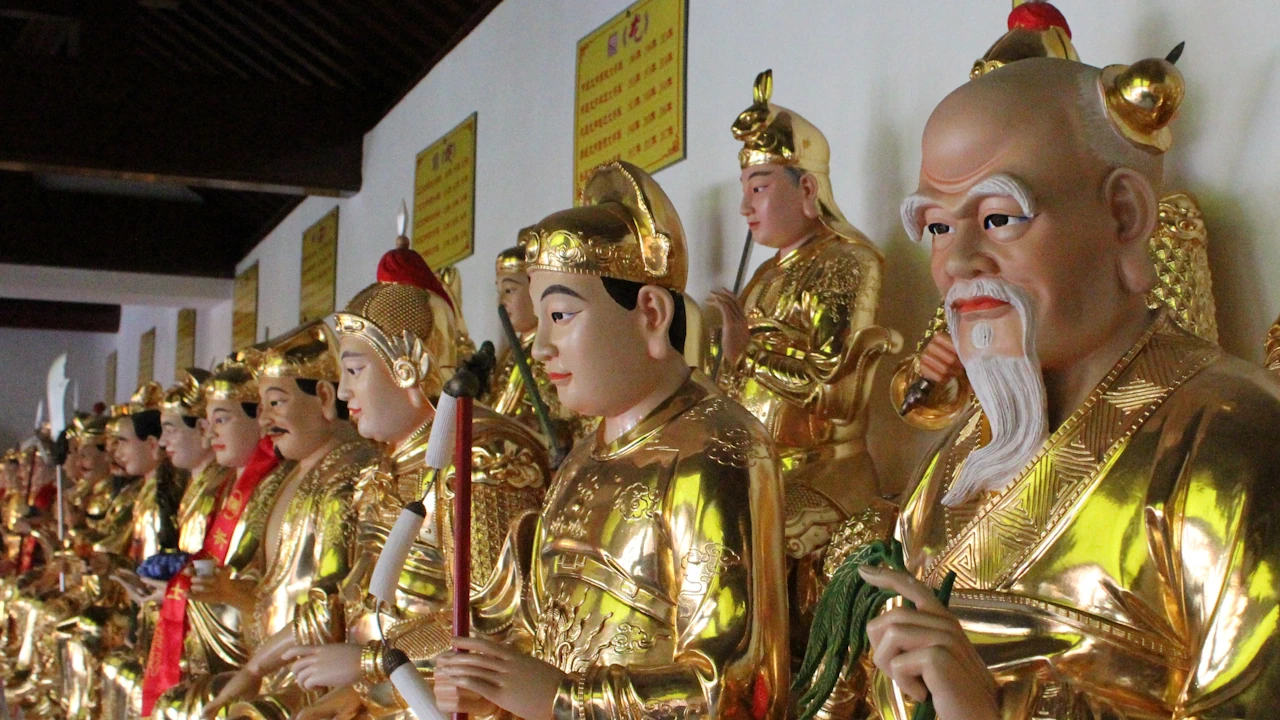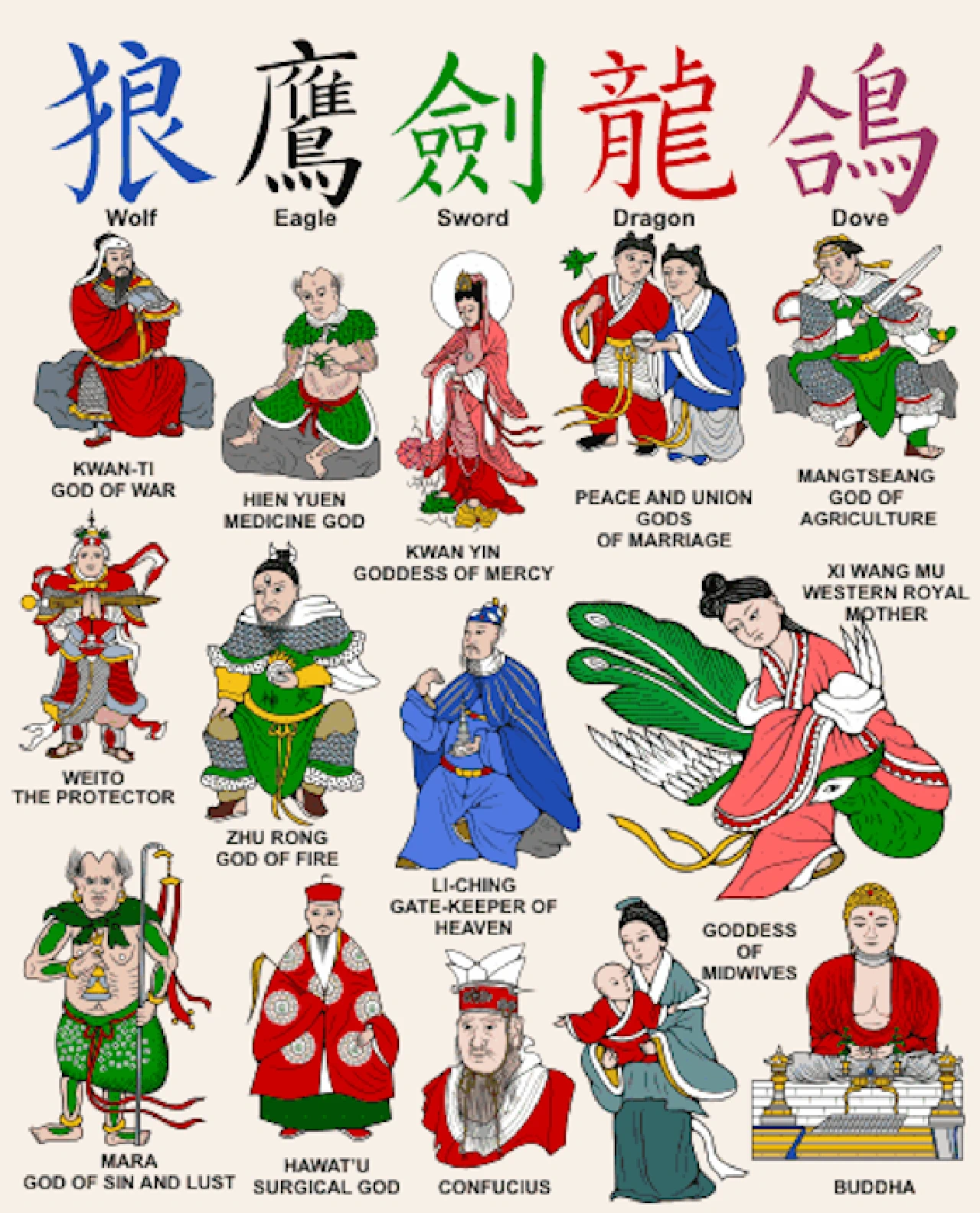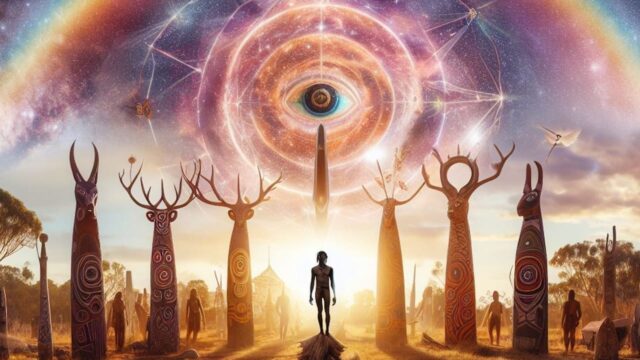Here is our list of the 10 most popular Chinese gods. Learn about their origins, relationships, legends, and most amazing powers.

10 most famous Chinese gods
China, one of the longest-standing civilizations the world has ever seen, is not only famous for its ancient progression and vast development, but also for the charm and mystery of its culture and mythology, including the Chinese gods, who are fundamental to its beliefs.
Chinese mythologies, in particular, are marvels and wonders that blur the line between reality and myth, with many myths intertwined with history creating the basis of belief for many Chinese people today. It can only be said that Chinese mythologies and the gods and goddesses that made history were an inseparable part of China.
Chinese gods
Chinese gods and goddesses are fascinating figures in the history of ancient China, as they are fundamental to its survival in the construction of many philosophies and ways of life for the ancient Chinese to their current generation and possibly the few parts of the Asian region. Therefore, let’s learn more about these 10 prominent Chinese gods and goddesses of mythology.
1.- Pan Gu
While there are many wonderful Chinese deities, there is no Chinese god portrayed as the creator of the earth other than Pan Gu. Also known as P’an Ku or Pangu, he is given the title of god of creation and the first man .
He is also a central figure in Taoist teaching (the path recognized with Yin and Yang). According to Chinese mythology, Pan Gu is depicted as a dwarf the size of a man, adorned with horns and fangs, and said to have a hairy body.
It is said that he emerged from the egg containing Yin and Yang when the Big Bang occurred and broke the egg. After being born, he cut through the darkness that previously filled the universe by raising Yang upward and turning it into the sky, while pushing Yin downward and creating the earth.
According to legend, after creating the earth and sky, he created other things on earth. He shaped the valleys and mountains, gradually adding details to his creation in balance according to the principle of Yin and Yang that was given to him.
2.- Nüwa
Although there is a myth that humans were created from Pan Gu’s fleas, the favorite version for many is the myth of the goddess Nuwa, the next popular character in Chinese mythology. Nuwa, also known as Nu Wa or Nugua, was born centuries after the world was perfected and is said to have the upper body of a human and the lower half of a dragon.
Nuwa is revered as a goddess in the popular tale of repairing the pillar that held up the sky and earth, which was damaged in the war between Gonggong and Zhuanxu.
She is believed to be the goddess of matchmaking, the one who kills all the monsters on earth, and above all, she is the mother of humankind. According to mythology, out of boredom, she created humankind by molding clay from the Yellow River, making a figure like herself and breathing life into it.

3.- Fuxi
In the myth of the Ten Legendary Kings, a tale about the gods who gave birth to the people, Fuxi is one of the prominent figures in the universe of Chinese gods and goddesses. He is said to be the husband of Nuwa, and as he is depicted as her husband, he is often given a half-human, half-dragon body in many writings and paintings.
He is also considered the bringer of human civilization along with his wife, who was the first to mold human beings into existence. While Nuwa is the one who creates human beings, Fuxi is the one who gives them knowledge, as human beings were created without knowledge at first.
He was famous as the Chinese god who taught people the skills of survival, granting them the ability to write, cook, and tell riddles.
4.- Guan Yin
From the mythology of pilgrimage comes the beloved goddess of mercy and compassion, Guan Yin. Her very name meant “one who hears the cries of suffering in the world.” She was a prominent figure in the Chinese pantheon of gods and goddesses, who also stood as the protector of sailors and fishermen.
Guan Yin is depicted as a lady wrapped in an elegant white robe, carrying a baby in her arms to symbolize her great compassion and empathy for humanity, and standing on a lotus bud to show her roots as a former human. In some popular representations, instead of a baby, Guan Yin holds a willow branch in one hand and a vase of pure water in the other.
5.- Gonggong
Gonggong, also known as Kanghui, is one of the many Chinese water gods. However, compared to other water gods, his figure is prominent in Chinese mythology and he is known for the war he created that broke the pillar supporting the sky. He is portrayed as a crowned figure with red hair and a serpent’s tail, which fits well with his image as a war enthusiast.
In many myths in which he appears, Gonggong is responsible for causing widespread destruction through the dangerous flood he created. He fought a fierce battle with other gods and goddesses to gain total dominion over the world, an action that brought misery upon humans and provoked the wrath of Nuwa.
6.- Yu the Great
Although we often hear about demigods in the Western world, China once had its own great demigods. Yu the Great is a legendary figure for the ancient Chinese, dating back to around 2200 BC.
As a demigod, he had the ability to change his form into anything he desired, from a fearsome dragon to a simple human being. He is considered the first to relinquish his status as ruler and is the founder of the Xia dynasty.
Unfortunately, the Xia dynasty is quite questionable as a real history, as there is not enough archaeological evidence and, as is often the case with China, many of its myths are blurred with real history.
7.- Hou Yi
There are two main versions of the legend of Hou Yi, the first of which considers him a mortal who helps the gods, and the second considers him a god. Either way, Hou Yi was a great archer with a kind heart who helped people and was the husband of the infamous Chang’e.
He is said to have lived from around 2436 BC to 2255 BC. The story of Hou Yi was often associated with the population of southwestern China.
Hou Yi, in one description, is heroic. During an eclipse that led him to meet his wife, he saved the moon. He is also believed by many to have saved the country from many outbreaks and to be the one who saved the country from the scorching heat of 10 suns by shooting down 9 suns and leaving only one.
8.- Chang’e
As the myth of Hou Yi is famous among the Chinese, the story of Chang’e is equally famous and fascinating, known as the goddess of the moon. Chang’e is another of the most popular and prominent figures in the realm of Chinese gods and goddesses. She is also said to be the goddess most frequently mentioned in Chinese literature.
Chang’e, also known as Chang-O in some literature, is the beautiful wife of Hou Yi. She is a figure in many Chinese mythologies, although the most famous is her myth with her husband.
9. Sun Wukong
Many of us must have heard of Sun Wukong as he is a popular myth that has been adopted in many series and films. He is known as the Monkey King of China and one of the most beloved figures in Chinese mythology for his antics, i.e., the god of mischief.
Sun Wukong is often depicted in his fighting attire and holding a golden staff. The widespread myth of Sun Wukong was written by Wu Cheng’en, a government official in ancient China. In the novel ‘Journey to the West’, it is said that the Sun came out of a stone egg, a part of the magical rock located on the Mountain of Fruit and Flowers.
Sun Wukong was notably known for his mischief and arrogant behavior. According to the myth created for him, he was eager to take control of the world and caused chaos in heaven after gaining great power through Taoist practice, bravely challenging the gods and goddesses in the process.
10.- Chi Lin
If the unicorn is famous for being a creature like a house that has magical power, your unicorn myth in China is very different from the popular culture that spreads throughout the West. Chi Lin, the Unicorn, was a myth from the era of Confucius’ teachings. Chi Lin is a sacred animal represented as a combination of an ox, a deer, a dragon, and a horse.
It is said that Chi Lin is a peaceful animal that possesses the ability to prophesy. Therefore, it is considered sacred as it carries information about the distant future. In the myth, Chi Lin is described as a little shy, but will immediately lose its innocent behavior if it becomes angry.
Conclusion
Chinese mythology is undoubtedly wonderful and fascinating, as it is not a story forgotten by generations, but rather forms the basis of many Chinese teachings and practices, especially Taoism. Chinese gods bring many lessons to humans and teach them wisdom. After all, the mythological tales of ancient China are intertwined with the history of the old world, and therefore contain truths that must be taken into account by future generations.

